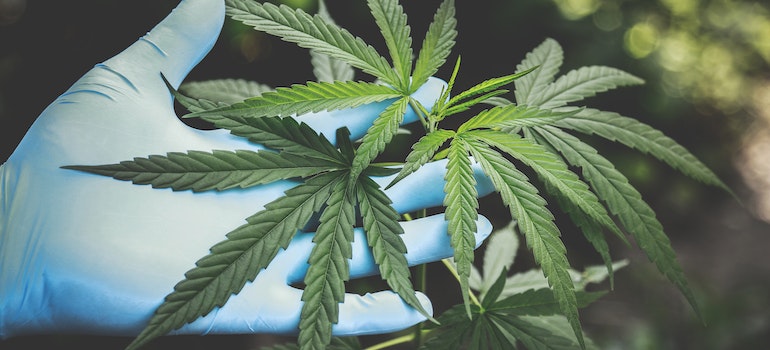College life is often portrayed as a time of fun, adventure, and newfound freedom. However, for many students in West Virginia, it can also be a time of experimentation and substance abuse. Drug abuse is a pervasive problem in colleges across the United States, but West Virginia faces unique challenges, with addiction and overdose rates higher than the national average. From alcohol and marijuana to prescription drugs and opioids, college students in West Virginia are turning to a variety of substances to cope with the pressures of academic and social life. In this article, our experts from Harmony Ridge Recovery Center WV will tell you more about the most commonly abused drugs in colleges in West Virginia and the risks associated with them.
Prescription drug abuse
According to the National Survey on Drug Use and Health, in 2019, 3.4% of college students in West Virginia reported misusing prescription drugs in the past month. A lot of patients in rehab centers for young adults suffer from addiction to prescription drugs. The risks associated with prescription drug abuse can be severe and potentially life-threatening.
Prescription drug abuse can lead to addiction, which is a chronic disease that can impact a person’s physical, mental, and emotional health. Addiction to prescription drugs can also lead to the use of other drugs, such as heroin or fentanyl, which can increase the risk of overdose and death.

Serious threats to health
Moreover, prescription drugs, such as opioids and benzodiazepines, can be particularly dangerous when misused. According to our experts at barbiturates rehab, these drugs can cause respiratory depression, which can result in a decreased heart rate, shallow breathing, and even death. Additionally, mixing prescription drugs with alcohol or other drugs can increase the risk of overdose and other health problems.
Abuse as a coping mechanism
College students may be more vulnerable to prescription drug abuse due to the high levels of stress and pressure associated with academic life. Many students may turn to prescription drugs to cope with anxiety, depression, or other mental health challenges. It is essential for college campuses to provide students with access to mental health resources and support, as well as education on the risks and consequences of prescription drug abuse.
The opioid epidemic and the students of West Virginia
The opioid epidemic has had a significant impact on West Virginia, and college students are not immune to its effects. According to the National Survey on Drug Use and Health, in 2019, 0.5% of college students in West Virginia reported misusing opioids in the past month.
West Virginia has been hit particularly hard by the opioid epidemic, with some of the highest rates of opioid overdose deaths in the country. This crisis has been fueled in part by the overprescription of opioids for pain management and the subsequent misuse of prescription opioids. However, the rise of synthetic opioids, such as fentanyl, has also contributed to the epidemic and increased the risk of overdose.
Anxiety and the risk of opioid abuse
College students may be at higher risk for opioid abuse due to the stress and pressure associated with academic life. Additionally, some students may turn to opioids as a way to cope with mental health challenges, such as anxiety or depression.

The impact of the opioid epidemic on a person and surroundings
The impact of the opioid epidemic on college students can be severe, leading to addiction, overdose, and other health problems. Opioid addiction is a chronic disease that can impact a person’s physical, mental, and emotional health and can lead to the use of other drugs, such as heroin or fentanyl, which can increase the risk of overdose and death.
Moreover, the opioid epidemic has a ripple effect on the families, friends, and communities of those impacted by addiction and overdose. It can also impact academic performance, social relationships, and future job prospects.
The use of stimulants among students
According to the National Survey on Drug Use and Health, in 2019, 6.3% of college students in West Virginia reported using stimulants for non-medical purposes in the past year.
Stimulants, such as Adderall and Ritalin, are commonly prescribed for the treatment of attention-deficit/hyperactivity disorder (ADHD). However, they are also used recreationally to enhance academic performance, increase energy and focus, and stay awake for long periods of time. Unfortunately, stimulant abuse can lead to a range of risks and consequences. One of the consequences leads to our stimulants addiction rehab center in WV.

Effects of commonly abused drugs in colleges in West Virginia
One of the primary risks associated with stimulant abuse is addiction. As we all became aware, addiction is a serious problem that we shouldn’t take lightly. Stimulant abuse can also increase the risk of overdose, which can result in seizures, heart attack, stroke, and even death.
Moreover, long-term stimulant abuse can have potential effects on mental health, including anxiety, depression, and psychosis. Regular use of stimulants can lead to changes in brain chemistry, which can result in mood and behavioral changes, and even contribute to the development of mental health disorders.
Marijuana abuse
Marijuana abuse is a prevalent issue among students in West Virginia, with around 35.7% of high school seniors reportedly using it. According to our experts at marijuana rehab in West Virginia, the most common reasons for abusing pot are social pressure, boredom, stress relief, and curiosity. However, marijuana abuse can lead to several adverse effects, such as impaired cognitive function, poor academic performance, and mental health issues. Additionally, using marijuana may also result in addiction, which can be tough to overcome.

Alcohol abuse among students in West Virginia
Even though this article is primarily about drugs, alcohol should be included as an honorable mention. Alcohol abuse is a significant problem on college campuses in West Virginia, with high rates of binge drinking and underage drinking. According to the National Survey on Drug Use and Health, in 2019, 58.1% of college students in West Virginia reported using alcohol in the past month, and 29.1% reported binge drinking.
Risky and violent behaviors
The consequences of alcohol abuse among college students can be severe, with risks ranging from alcohol poisoning to accidents and violence. Binge drinking can lead to alcohol poisoning, which can result in seizures, coma, and even death. Additionally, college students who drink heavily are more likely to engage in risky behaviors, such as driving under the influence or engaging in unsafe sex.
Alcohol abuse can also contribute to physical and emotional violence, including sexual assault and domestic violence. Studies have shown that alcohol is a significant factor in a large number of sexual assaults on college campuses. Furthermore, heavy drinking can contribute to depression, anxiety, and other mental health problems.
Alcohol abuse in students from different backgrounds
Alcohol abuse is a pervasive problem on college campuses in West Virginia, and it affects students of all backgrounds. The National Survey on Drug Use and Health found that in 2019, 58.1% of college students in West Virginia reported using alcohol in the past month, and 29.1% reported binge drinking.
Short-term and long-term damage
In addition to alcohol poisoning, excessive drinking can lead to accidents and injuries, such as falls, car accidents, and drowning. There are so many short-term negative effects of excessive drinking.
Furthermore, heavy drinking can lead to long-term health consequences, such as liver disease, high blood pressure, and an increased risk of developing certain cancers. It can also exacerbate mental health problems, such as depression and anxiety.

The importance of drinking responsibly
It is crucial for college campuses in West Virginia to implement effective prevention and intervention programs to address alcohol abuse and help students make informed decisions about their drinking behaviors. Moreover, students need to understand the potential risks associated with alcohol abuse and learn how to drink responsibly. By providing education, resources, and support, we can work together to address this pervasive problem and create a safer and healthier college community.
Why do students turn to drugs?
Drug abuse among students in West Virginia is a complex issue that can stem from a variety of factors. One common reason for drug abuse is peer pressure. Students may feel pressure to fit in with their peers, leading them to experiment with drugs. They may also feel the need to escape from problems at home, school, or with relationships. Some students may struggle with mental health issues like anxiety or depression and turn to drugs as a coping mechanism.
Easy access increases the prevalence of abuse
According to the experience of experts at the substance abuse treatment WV center, another reason for drug abuse is the availability of drugs. Students may have easy access to drugs, either through friends or family members who use or sell drugs or through drug dealers in their communities. In some cases, students may be unaware of the dangers of drug use and may experiment out of curiosity.
What does West Virginia do to prevent the problem?
Prevention and intervention programs are critical to addressing drug abuse on college campuses. These programs can help students make informed decisions about their drug use, provide support to those struggling with addiction or mental health challenges, and create a safer and healthier college community.
Education is the best prevention
One of the most effective prevention programs is education. Providing students with education on the risks and consequences of drug abuse can help them make informed decisions about their drug use. Additionally, creating a supportive and inclusive campus environment can help reduce the stigma associated with drug abuse and encourage students to seek help when needed.
Friendly interventions
Intervention programs are equally important. These programs can identify students who are struggling with drug abuse or mental health challenges and provide them with the support they need. For example, counseling and therapy services can help students address underlying mental health issues that may contribute to drug abuse. Support groups can provide a safe and supportive space for students to connect with others who are going through similar challenges.
Also, there are a lot of rehabs in WV that accept Medicaid today, so financing shouldn’t be a problem.
Access to treatment
Treatment programs are also crucial for those struggling with addiction. These programs can provide comprehensive care, including medical and psychological support, to help individuals overcome addiction and build a healthy and sustainable recovery. In West Virginia, there are a variety of treatment programs available, including:
- inpatient and outpatient treatment
- detoxification programs
- medication-assisted treatment in West Virginia
Overall, it is essential for college campuses to provide students with a range of resources and support to address drug abuse and mental health challenges. By working together to create a supportive and inclusive campus community, we can help students make informed decisions about their drug use, seek help when needed, and build a healthy and fulfilling life.

Put an end to commonly abused drugs in colleges in West Virginia
Substance abuse can have serious consequences for students, including poor academic performance, social isolation, and long-term health problems. Students need to be educated about the dangers of drug abuse and to have access to resources for help and support. If you or someone you know is struggling with drug abuse, it’s important to seek help from a trusted adult, a counselor, or a healthcare provider. We all need to take a good look at the commonly abused drugs in colleges in West Virginia and help our youth choose a better path to a harmonious life.



